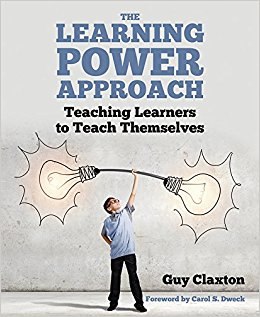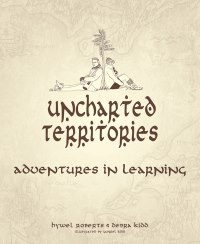New Books from Crown House Publishing
The Learning Power Approach

This is not a criticism of teachers. They are doing what they must to survive in an increasingly pressurised and polluted system. Under immense pressure to raise standards and improve grades they have been obliged to teach in a way which is creating anxious and closed-minded students.
We know that it is the nitty-gritty of teaching that matters most in schools, but different styles and methods of teaching lead to different outcomes. One style can lead to happy children with poor achievement. Another can get good results but runs the serious risk of creating students who are compliant and dependent. But there is a third that gets good results in a way that also develops independence, initiative, determination, and a love of learning. That’s the holy grail of pedagogy. It is what Guy Claxton calls the Learning Power Approach, and it delivers the best of both worlds.
The Learning Power Approach clearly describes in detail the small tweaks to practice that are needed, together with the supportive evidence that underpins them. Never before has it been so vital that educators can explicitly teach not just content, knowledge, and skills, but also the positive habits of mind that will better prepare students to flourish, both in school and in later life.
Read the press release in full here.
Guy Claxton is Emeritus Professor at Winchester University and Visiting Professor of Education at King’s College London. He has previously taught and researched at Oxford University, Bristol University, and the University of London Institute of Education, and is an internationally renowned cognitive scientist.
Unchartered Territories: Adventures in Learning

In this time of high-stakes testing, growing mental health issues among young people and increasing pressure on teachers to focus on rote repetition and practice papers, we have to step back and ask: “What is the purpose of education?”
If you think it is to get children through tests, then Hywel Roberts and Debra Kidd’s Uncharted Territories approach to teaching is probably not going to be of interest to you. If, however, you think it is to develop wisdom in children – the capacity to think, to apply knowledge, to empathise, to weigh up evidence, to consider consequences and to make informed choices – then this approach is most definitely for you.
As Hywel and Debra set out in their statement of intent for Uncharted Territories: Adventures in learning: “Teachers can’t possibly work harder. Schools can’t possibly do more. As hard as they may try to, and in spite of all this effort, results don’t improve and our children’s and teachers’ mental health suffers. Outside of education, our planet is facing challenges that only the best kinds of thinking will be able to fix. Teaching children the best that has been thought and said only takes us so far. It takes us into our rich and fascinating past. But the future will demand the best that is yet to be said, yet to be thought and yet to be done. That thinking and that action will be done by our children and in order to equip them with the capacity, belief and desire to engage with this, we need to look to the future – empowering children with the belief that they can be agents for change, armed with the tools to imagine themselves into a more humane, creative world.”
In their introduction Hywel and Debra go on to explain: “It is our firm belief, rooted in over 40 years of collective experience, that the most successful schools see examinations as by-products of a great education – not as the end product. They see that education itself is a much more complex journey into the heart of what it is to be human.”
Read the full press release here
Hywel Roberts has taught in secondary, primary and special settings for over 25 years. He contributes to university education programmes and writes regularly for TES as the “travelling teacher”. A true Northerner, Hywel deals in botheredness, creative practice, curriculum development and imagineering. He was recently described as “a world leader in enthusiasm” and his first book, Oops! Helping children learn accidentally, is a favourite among teachers.
Dr Debra Kidd taught for 23 years in primary, secondary and higher education settings. She is the author of two previous books, Teaching: Notes from the front line and Becoming Mobius: The complex matter of education, but her latest project, Uncharted Territories: Adventures in learning, with Hywel Roberts is her favourite because it represents where her heart is – in the classroom. Debra is the co-founder and organiser of Northern Rocks – one of the largest teaching and learning conferences in the UK. She also has a doctorate in education and believes more than anything else that the secret to great teaching is to “make it matter”.
Please check the Methodology and Language for Primary course at Pilgrims website.
Please check the Methodology and Language for Secondary course at Pilgrims website.
ETpedia: 50 Ways to make your lessons more visual
New Books from Crown House Publishing
New from Routledge: The Language of Pop Culture